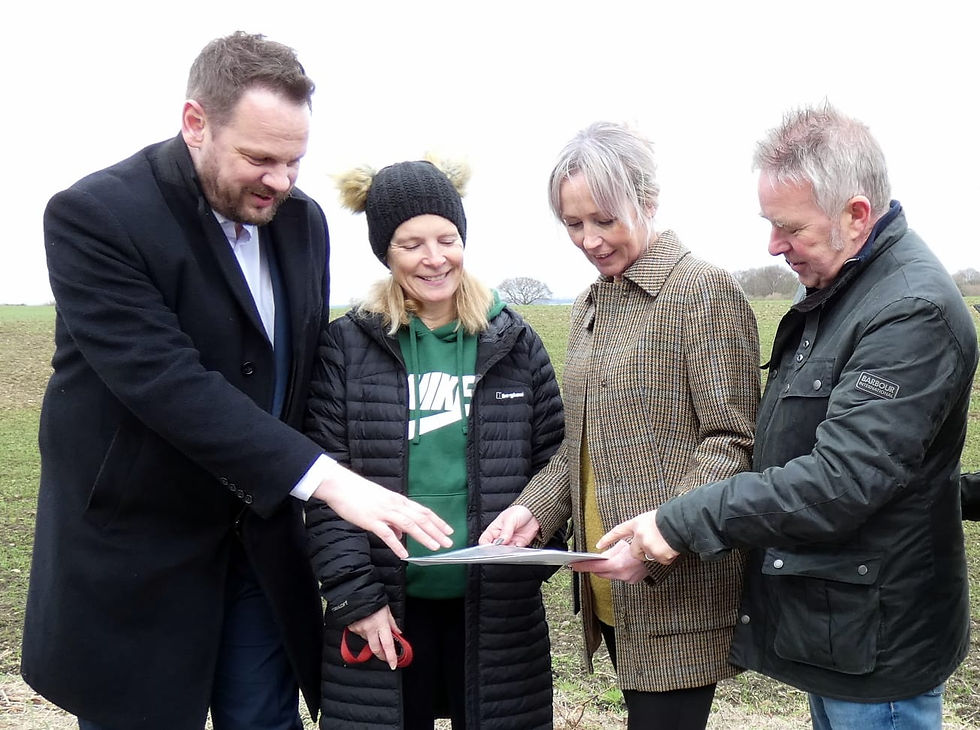MP Visits Sitlington to See Impact of Proposed Solar Farm.
- emmajholland
- Mar 20, 2023
- 2 min read
Wakefield MP Simon Lightwood visited the site of controversial renewable energy schemes that could cover hundreds of acres of Yorkshire countryside in solar panels.
Mr Lightwood was invited along on Friday (March 3, 2023) by the Save Sitlington group to see part of the site, on greenbelt land opposite the Reindeer Inn, at Overton.
Boom Power, the company behind the proposals, has already been granted permission by Kirklees Council to build a solar farm on 210 acres of land on the opposite side of the A642 New Road, at Low Farm, Flockton, close to the National Coal Mining Museum.
The company intends to submit an application to Wakefield Council to install solar panels on a further 133 acres of farmland in the Overton, Middlestown and New Hall areas of Wakefield. A third application to access the National Grid on land near to Horbury Bridge has also been approved.
But the Save Sitlington group says the latest proposal will irreparably damage protected greenbelt land, in breach of national and local planning policy, and spoil the area for the hosts of hikers, horse riders and birdwatchers who regularly use the footpaths and bridleways criss-crossing it.
In a speech at Westminster Hall last month (Wakefield Express, Feb 27), in response to house-building projects in the district, Hemsworth MP Jon Trickett said incursions on greenbelt land should be a last, not a first resort.
For many, particularly the elderly and infirm, access to green spaces was crucial for their health and well-being.
Mr Trickett said: “They should not be deprived of access to the countryside, but the more we build up, the fewer amenities will be available.”
Save Sitlington is also concerned that fencing in the site around hundreds of solar panels nearly two metres high will deter wildlife and adversely affect adjoining ancient woodlands, sites of special scientific interest and a special area of conservation.
In addition, building on arable land was a dangerous commitment when world events, such as the war in Ukraine, were putting food security at risk.
Boom Power said that the scheme was temporary, having a 35 to 40-year life span, after which the land could be returned to its current condition, a claim contested by protestors.
Save Sitlington pointed out a recent ruling by a Government planning inspector against a developer’s appeal to build a 185-acre solar farm near Alfreton, reported in the Derbyshire Evening Telegraph last December.
Planning inspector Paul Jackson concluded: “The need for renewable or low carbon energy does not automatically override environmental protections. In the overall balance, the harm caused to landscape character and visual amenity is decisive. I consider that 40 years is a very significant period in people’s lives during which the development would seriously detract from landscape character and visual amenity.”
In December, around 200 people attended a public meeting at the National Coal Mining Museum to express concern about the Wakefield proposals. The meeting heard Wakefield Council had now asked for a full environmental impact assessment to inform future planning discussions.






Comments